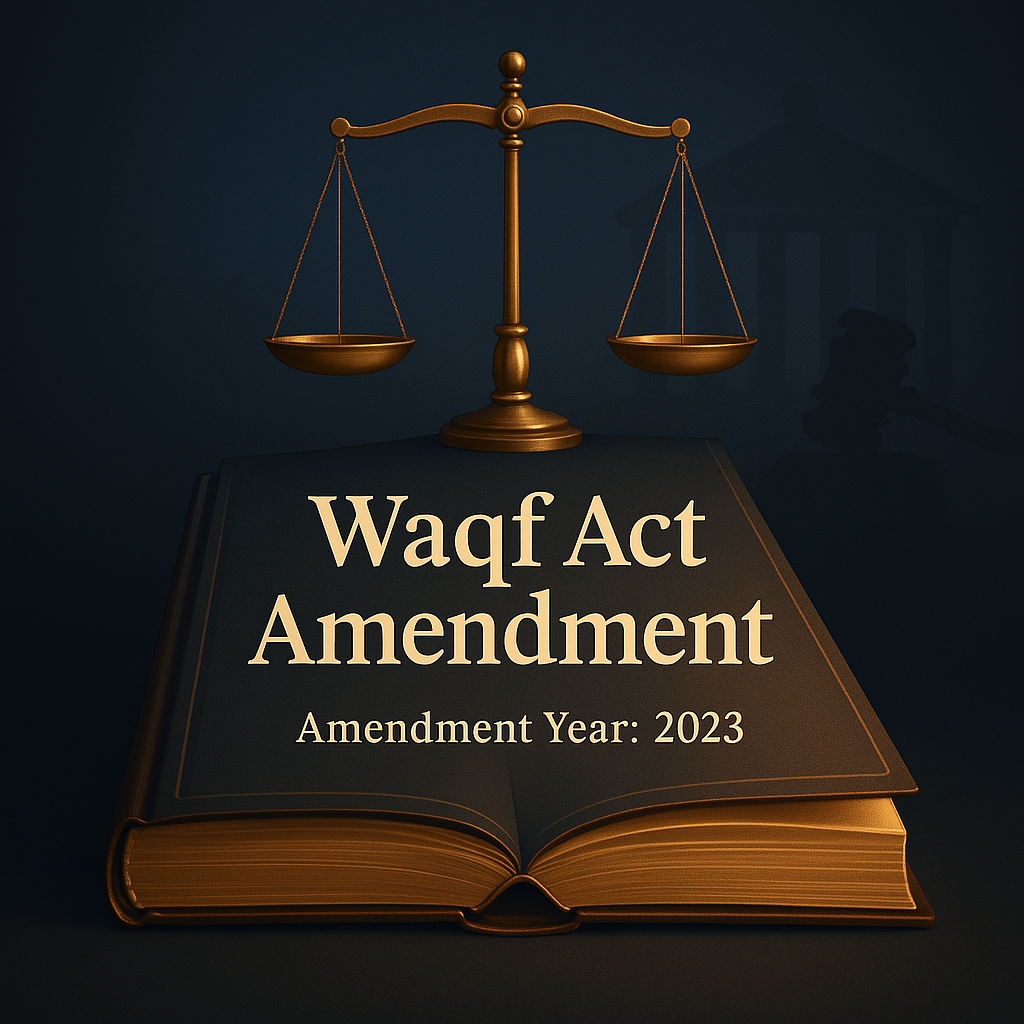Detailed Analysis of Waqf Board History and the 2025 Waqf Amendment Act

What is the Definition of Waqf?
Waqf (meaning "endowment") is an Islamic tradition where an individual donates property for religious or social welfare purposes. This property comes under the control of the Waqf Board and is intended to be used strictly for defined religious or social objectives.
How Was the Waqf Board Established?
In India, the first Waqf legislation was introduced during British rule in 1923. Subsequently:
1954: The Waqf Act was passed, creating separate Boards for the management of Waqf properties.
1995: Amendments were made, granting Boards greater authority.
2006: New provisions were added for the protection and better management of Waqf properties.
How Did the Waqf Board Encroach Upon Lands?
Due to lapses in law enforcement, the complete records of Waqf properties were not maintained. Several Boards arbitrarily declared various properties as "Waqf Property." Despite rightful ownership, common people and traders found themselves entangled in long court battles.
Major Problems Identified:
Record tampering: Listing Waqf as the owner instead of the rightful property holder.
Forced land encroachments: Seizing properties belonging to Hindus, Sikhs, and other religious communities.
Prolonged court disputes: Genuine owners struggled for years to reclaim their rights.
The 2025 Waqf Amendment Act: A Step by the Modi Government
Key Highlights of the Amendment:
Curtailment of Waqf Board Powers:
Boards can no longer declare a property as Waqf without solid evidence.
Formation of an Investigation Agency:
A neutral, independent body will investigate property disputes.
Review of Previously Declared Waqf Properties:
Past decisions will be reassessed to restore properties wrongly seized.
Protection of Community Properties:
Special provisions will safeguard religious properties of Hindus, Sikhs, and others.
Formation of Judicial Tribunals:
Dedicated tribunals will ensure quicker dispute resolution.
Benefits of the 2025 Amendment for Common Citizens
1. Complete Ownership of Property
Individuals whose lands were wrongly recorded under Waqf will regain full ownership.
2. Out-of-Court Settlement
Property disputes will now be resolved swiftly through tribunals and investigation agencies instead of prolonged court cases.
3. Protection of Community Properties
Religious places of Hindus and Sikhs will be shielded from wrongful Waqf claims.
4. Increased Transparency and Accountability
Boards will be required to publicize their decisions and undergo regular audits.
5. Reduction in Corruption
Strict action will be taken against Board officials who made illegal claims without evidence.
Some Major Examples of Waqf Property Encroachments
Rajasthan: Several Hindu ghats in Jaipur were declared Waqf properties.
Karnataka: Over 13,000 acres of land were listed under Waqf control.
Delhi: Ancient Hindu temples' lands were also included in Waqf lists.
Social and Political Impact
On the Social Front
Strengthened trust and equality between minority and majority communities.
Citizens will feel more secure about protecting their property rights.
On the Political Front
The Modi Government has earned public trust by addressing an old and serious issue.
This model might serve as a precedent for resolving other religious property disputes in the future.
Final Thoughts
The original purpose of the Waqf Board was to promote religious and social welfare, but over time it was misused. The 2025 Waqf Amendment Act is a crucial step towards strengthening justice and property rights in the country.
With this new law, common citizens will achieve rightful ownership and corruption will be curtailed. This reform is not just legal but a major stride towards social justice and national unity.
.jpg)